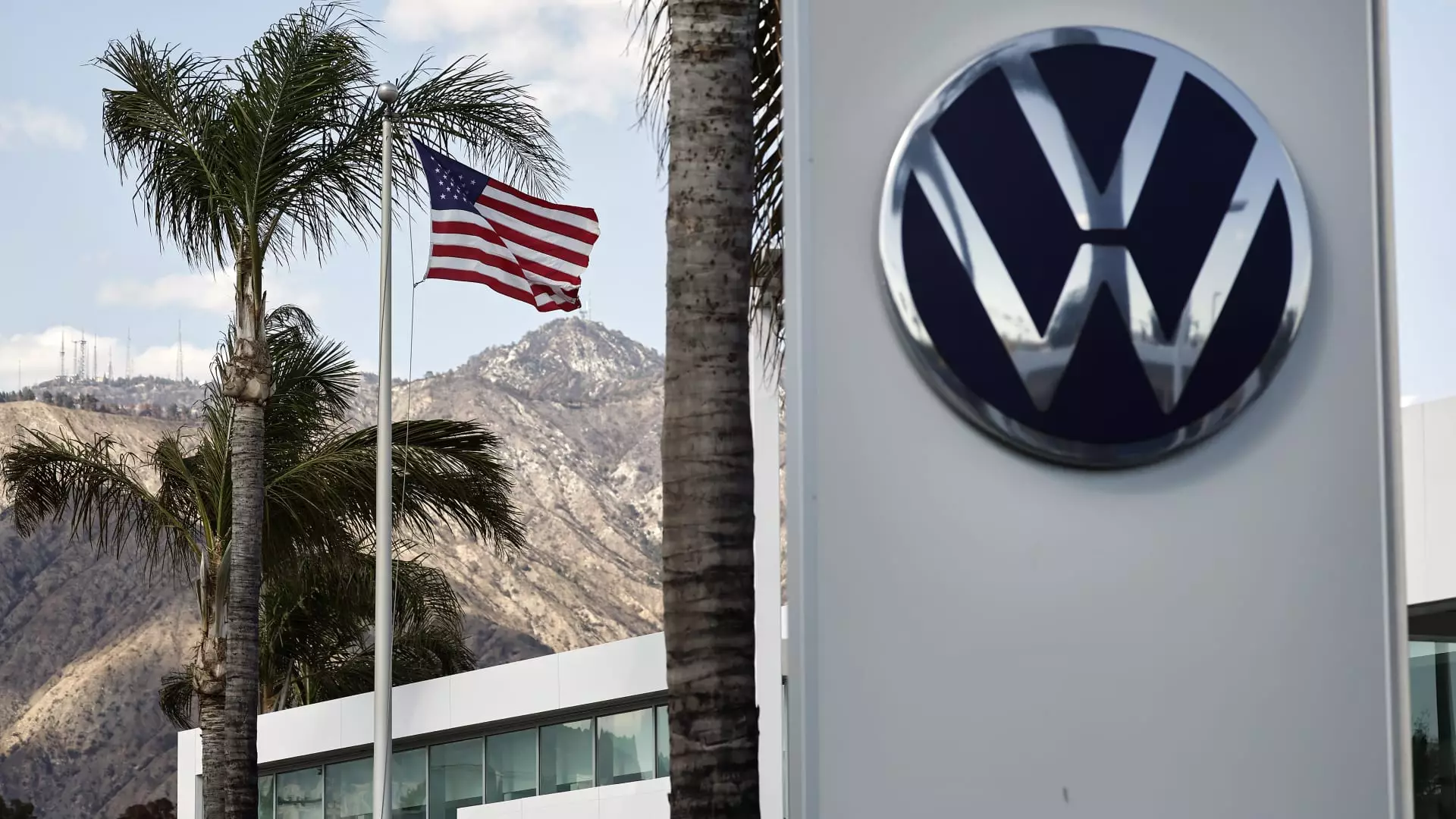In a shocking revelation, German auto titan Volkswagen has reported a steep 37% drop in its operating profit for the first quarter, leaving industry analysts and stakeholders in dismay. With an operating profit of 2.9 billion euros ($3.3 billion), the company’s results starkly contrast the promising sales revenue of 77.6 billion euros, a slight increase from the previous year. This paradox of growth curbed under heavy financial pressure paints a sobering picture of how political and economic turbulence can disrupt even the most stable business models. As a self-proclaimed liberal thinker, the state of Volkswagen prompts a grim reflection on the larger implications of trade tariffs and globalization in the auto sector.
The Tariff Toll: A Heavy Price to Pay
The substantial downturn in profits is primarily attributed to the existing U.S. tariffs, a byproduct of the ongoing trade war initiated by former President Trump. His administration’s unpredictable tariff policies have turned the automotive industry into a battleground, where companies like Volkswagen find themselves grappling with inflated costs and eroding profits. The freshly enforced 25% tariffs on imported vehicles continue to bear down on Volkswagen’s global competitiveness, forcing the company to rethink its operational strategies. For entities that rely heavily on international supply chains, such as Volkswagen, this political turmoil threatens to choke off profits and innovation, sending manufacturers scrambling to adapt.
Operating within Limits: A Narrow Path Ahead
Volkswagen’s Chief Financial Officer, Arno Antlitz, has pointed out the necessity of focusing on aspects within the company’s control in an unpredictable market. However, when much of the control lies outside the company’s jurisdiction, it raises questions about how effective such measures will be. With political uncertainty swirling, along with increasing trade barriers and stringent emission regulations, Volkswagen is left with few avenues to bolster its competitiveness. The emphasis on enhancing their product range alongside cost-cutting measures presents its own set of challenges and risks undermining the essence of quality and innovation—a cornerstone of Volkswagen’s brand identity.
Changing Sales Dynamics: A Double-Edged Sword
Interestingly, while Europe’s largest automaker saw an uptick in vehicle sales, the overall profits do not reflect this positive trend. The reported 2.1 million vehicle sales represent a recovery of 0.9% compared to last year, a statistic that should ideally translate into stronger financial health. However, higher sales in markets outside China signal an urgent need to diversify further rather than relying on any singular market presence. The disconnection between sales figures and profitability illustrates the volatile nexus of global trade, consumer preferences, and regulatory environments that can swiftly derail even the most promising upward trajectories.
Investor Confidence: Erosion Amidst Uncertainty
As news of Volkswagen’s profit slump broke, shares reflected the lack of investor confidence, dipping 0.7% on the London Stock Exchange. The market’s reaction underscores the broader sentiment that investors are keenly aware of the dangers lurking in the political landscape. With the expectation that operating returns will remain at the lower end of forecasts, stakeholders cannot help but scrutinize the company’s ability to navigate these turbulent waters. Investors are gradually recognizing that short-term gains do not guarantee long-term stability, particularly when outer forces govern the terrain so dominantly.
Looking Ahead: Incremental Gains or Systemic Change?
As Volkswagen contemplates its road ahead, the question remains: should the focus be on incremental gains or structural change? The measures put forth by the White House to alleviate tariffs provide hope but ultimately do little to settle the fundamental challenges confronting the auto industry. With the looming prospect of further global economic upheaval and stringent regulations, Volkswagen must strategically pivot, not only to maintain its market position but to redefine it entirely.
Faced with an uncertain future, the liberal vision of economic stability relies heavily on cooperation, innovation, and equitable trade policies, all of which seem conspicuously absent in current dialogues. Thus, should we brace ourselves for a fraught journey ahead for Volkswagen and, by extension, the global automotive industry? Unfortunately, the signs are increasingly pointing in that direction.

